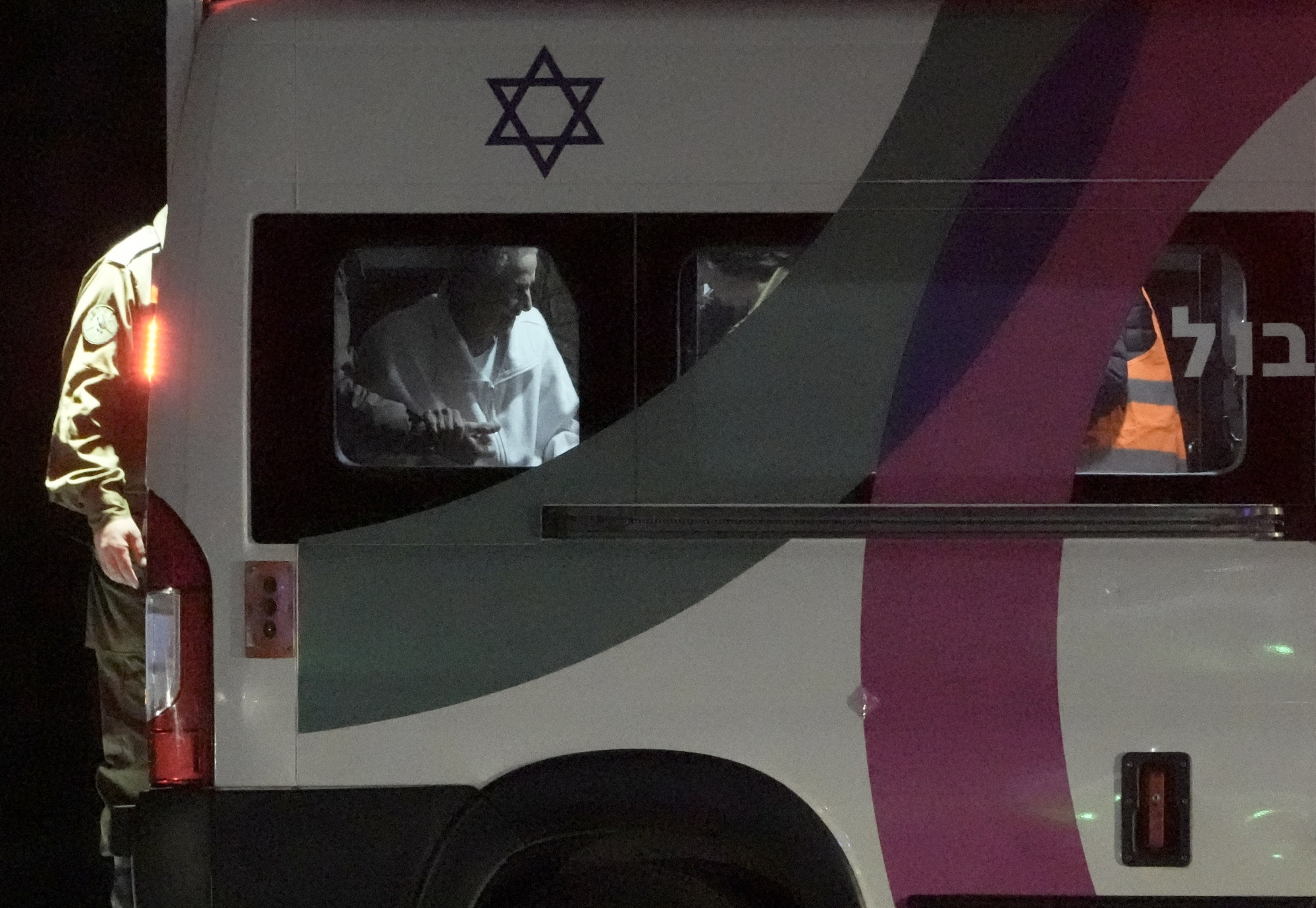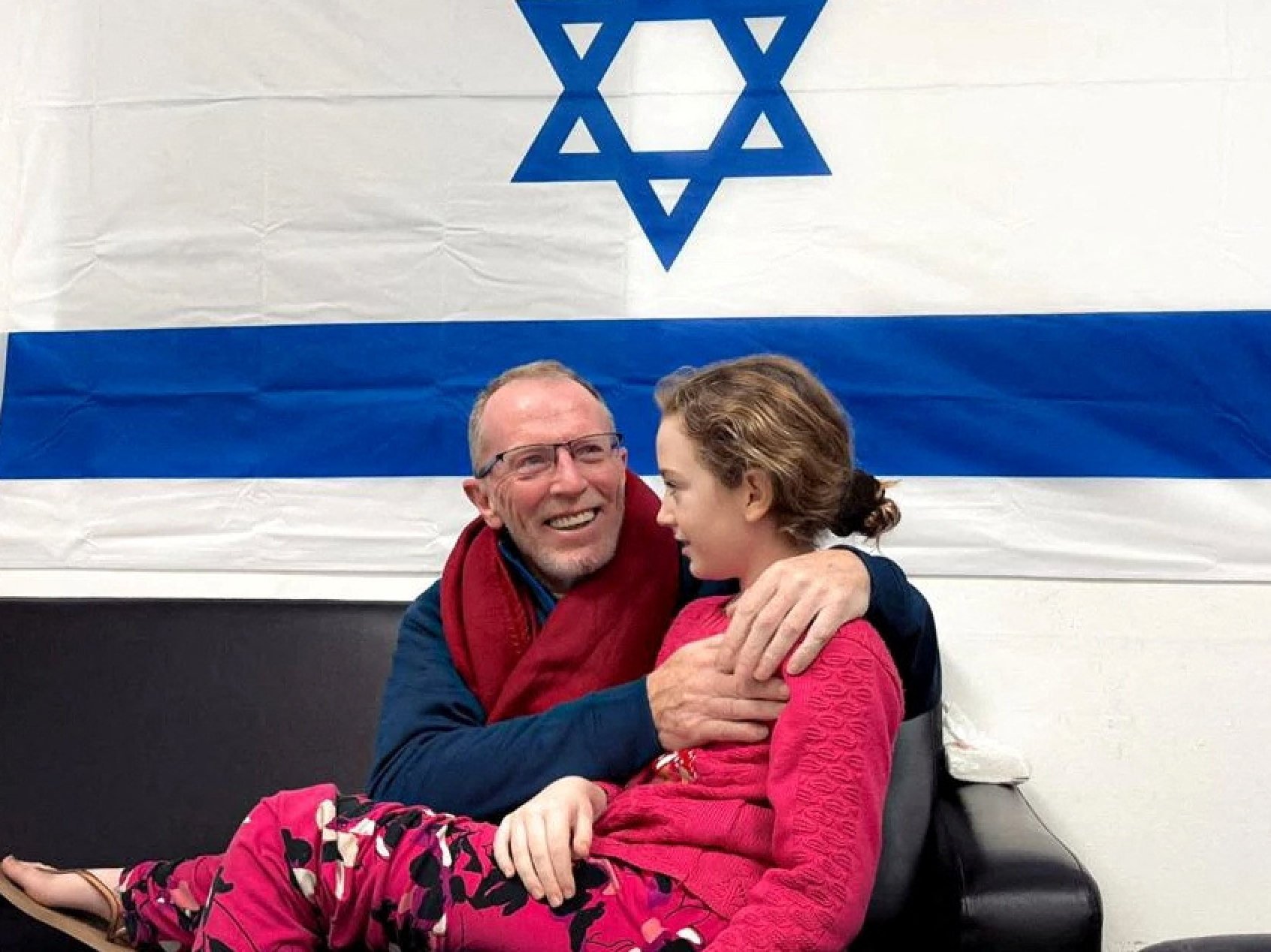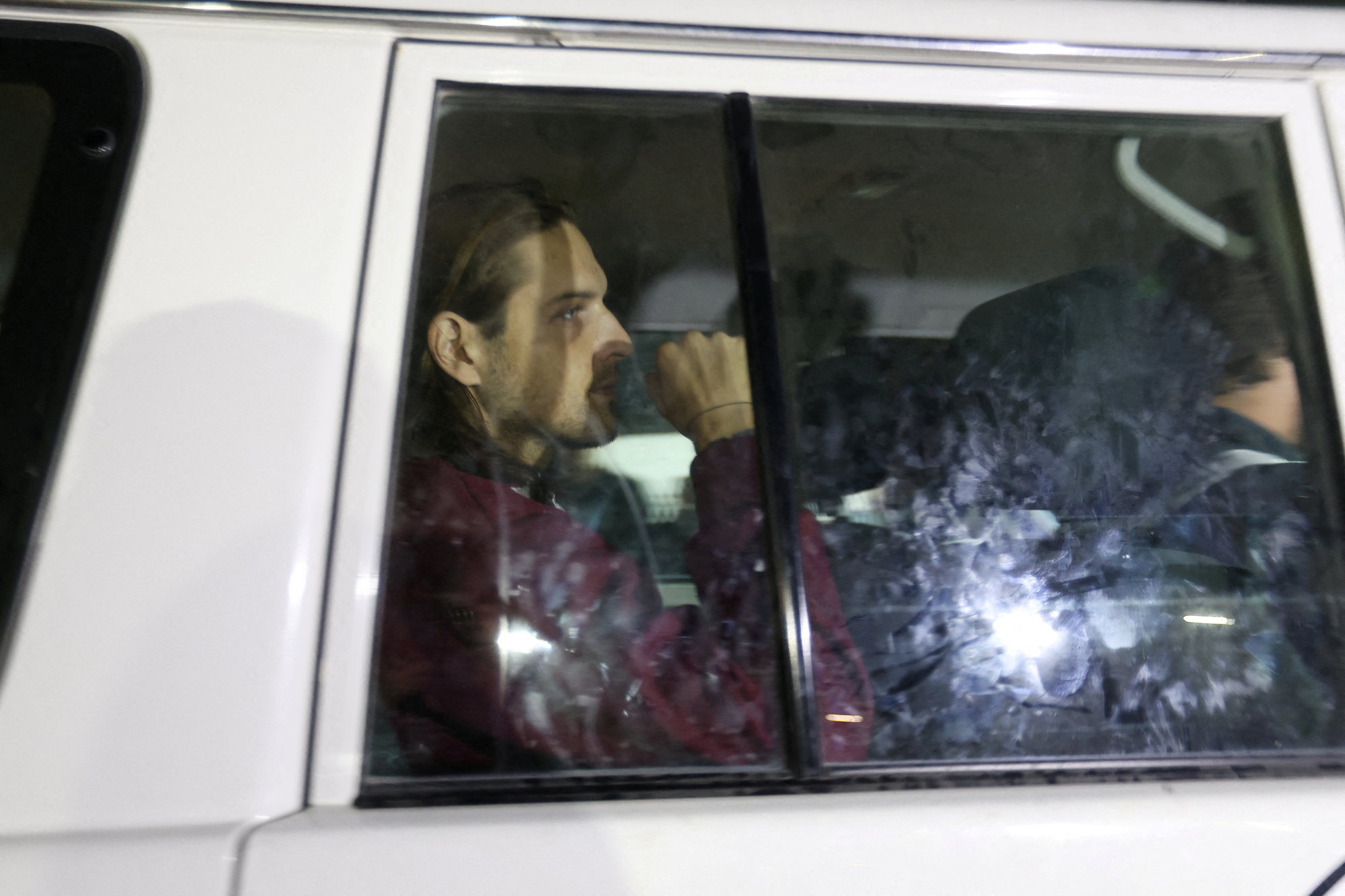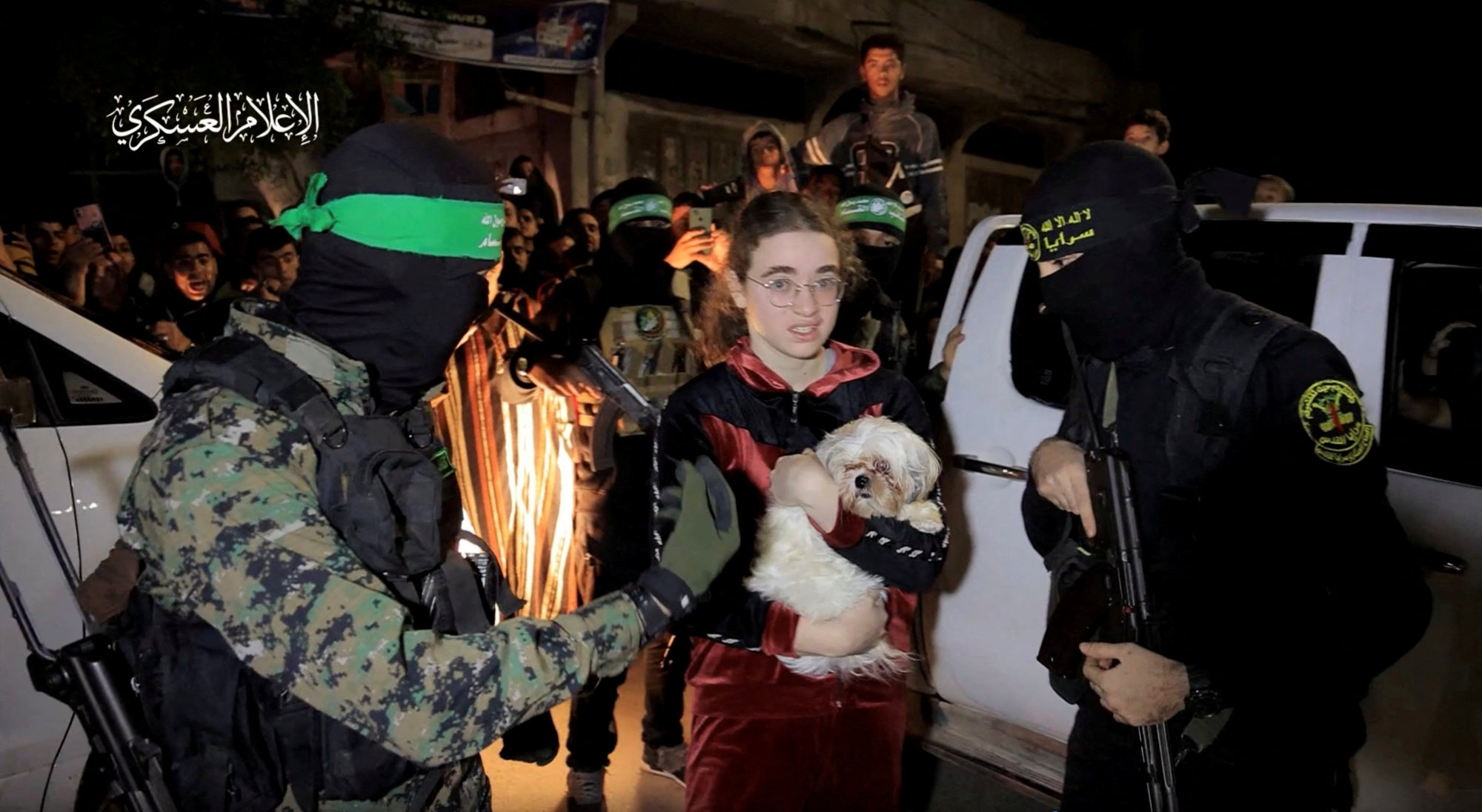Hamas fighters and other attackers seized an estimated 240 people during a bloody October 7 raid on small southern Israeli communities, frontier army bases and an open-air music festival.

In exchange, Israel has released 180 Palestinian prisoners, all women or youths. Many were teens accused of throwing rocks or firebombs.
Israel and Hamas extend Gaza truce, minutes before it was due to end
Israel and Hamas extend Gaza truce, minutes before it was due to end
Israel and Hamas struck a last-minute agreement on Thursday to extend their six-day ceasefire by one more day.
In Israel, former hostages for the most part remained sequestered in hospitals, receiving medical care, psychological support and family visits.
In recent days, those relatives have provided public accounts based on what loved ones told them about their ordeal – though many acknowledge it may take weeks, months or years for the full truth to emerge, if ever.
US Secretary of State Antony Blinken, who arrived in Israel early Thursday, expressed hope that the hiatus in fighting – and the release of hostages – would continue.
“We’d like to see the pause extended, because what it has enabled first and foremost is hostages being released, coming home, being reunited with their families,” he said.
For those held captive, daily experiences were disparate, sometimes sharply so, but family-relayed narratives are threaded by common themes – fear, hunger, despair, tedium.
They slept on bare benches, mats or chairs roped in a row; they asked permission to use the toilet, sometimes waiting hours to do so. Some said they received meals such as chicken and rice, at least initially; others subsisted mainly on bread, especially as hunger took hold across a blockaded Gaza.

Time, it seems, was elastic. One 86-year-old abductee, Yaffa Adar, kept precise track of her days in captivity, her granddaughter proudly related.
But one girl, nine-year-old Emily Hand, whispered to her father afterward – she was still afraid to speak at normal volume, Thomas Hand said – that she thought she had been held for an entire year.
At times, a family’s relief has been swiftly punctured by the realisation of how much damage the captivity had inflicted on a loved one.
Israel army says investigating Hamas report of baby hostage death
Israel army says investigating Hamas report of baby hostage death
Twelve-year-old Eitan Yahalomi, a French-Israeli citizen who was freed this week, told his aunt, Deborah Cohen, that he was hit by civilian onlookers when he was first dragged into Gaza by his captors, and that children who cried were threatened with rifles.
Cohen, interviewed by the French television channel BFM, said that during his time in captivity, the boy was forced to watch “horror videos” of Hamas’ October 7 cross-border attacks, which Israel said left at least 1,200 people dead, most of them civilians. The militants used GoPro cameras to record home invasions and execution-style killings.
“It’s unimaginable,” Cohen said.
Depending on location, some of those held could hear the thunder of Israeli bombardment – halted since Friday’s ceasefire – which local health officials say has killed between 14,000 and 15,000 Palestinians, and has levelled enormous swathes of Gaza.
One freed captive, Roni Krivoi – a dual Russian-Israeli national whose release reportedly came at Russian President Vladimir Putin’s request – told relatives that an Israeli air strike partially collapsed the building in which he was being held, allowing him to flee.
He hid for four days, but Gazans who found him turned him back over to Hamas, his aunt Elena Magid told Israeli public broadcaster Kan. She said the 25-year-old tried to reach the Gaza border, but “he didn’t have the means to understand where he was, and where to escape to”.
‘I danced’: Thai mum cries tears of joy after daughter released from Gaza
‘I danced’: Thai mum cries tears of joy after daughter released from Gaza
Some captives told their families they received medical attention while being held; others did not.
“She got none of the medicines she required,” Tali Amano told reporters, referring to her 84-year-old mother, Elma Avraham, who was hospitalised with life-threatening ailments after being freed Sunday. “From a medical point of view, she was seriously neglected,” Amano said.
Many among the freed abductees witnessed the killing of family members on October 7. Others learned of loved ones’ deaths only upon being released; military and medical personnel involved in the hostages’ initial reception were told to gently defer questions, especially from children who had lost one or both parents.

Of the women who were freed, many left husbands, partners or sons behind in captivity. Almost none of those released has a home to go back to; thousands of residents of ravaged Israeli communities near Gaza are being housed in hotels and other temporary accommodations.
However keen the relief experienced by individual families and across Israel, public rejoicing is muted. Families still gather at a plaza in Tel Aviv near Israel’s defence headquarters; many relatives of those already freed continue to go there daily as an expression of solidarity with those who wait.
For some families, the truce and the attending hostage-prisoner swap have brought fresh agonies.
At just 10 months old, an Israeli baby named Kfir Bibas is the youngest of those known to have been seized, and it was widely expected that he, his mother, Shiri, and his 4-year-old brother, Ariel, would be among those released under the current deal.
An unknown but perhaps substantial number of those counted as taken on October 7 are probably dead, Israeli officials have acknowledged – either killed in captivity or in the initial assault, their corpses commandeered as potential bargaining chips.

The bodies of at least two hostages – a 65-year-old mother of five and a young female Israeli soldier – were recovered in Gaza last week by invading Israeli troops, who now control much of the enclave’s northern half.
Family reunions usually take place behind closed doors or in controlled settings – in hospital corridors, or as captives disembark from Israeli military helicopters – but are almost always caught on video, often posted on social media as the country clamours for good news.
Wrenchingly intimate moments, though, become spectacles. A 21-year-old Israeli woman, shot and wounded before being captured at a music festival near the Gaza frontier, appeared composed as she was freed this week, hobbling on crutches to a waiting Red Cross vehicle.
But later, in a videotaped hospital reunion with her parents in which she was blocked from view, the young woman’s audible sobs turned to wild, wordless keening. Hospital staff near the gurney could be seen casting down their eyes and quietly backing away to provide a modicum of privacy.
Amid the horror, there were occasional surreal touches. A teenager who was freed Tuesday, 17-year-old Mia Leimberg, could be seen in a photograph surrounded by masked gunmen – while clutching the small fluffy dog that had been abducted along with her.
If captivity was harrowing, freedom is disorienting – both literally and figuratively. Adina Moshe, 72, was held in a tunnel in near-darkness before being released this week, her nephew Eyal Nouri told journalists.
“She’s not used to the daylight,” he said. “She’s had to adjust.”

